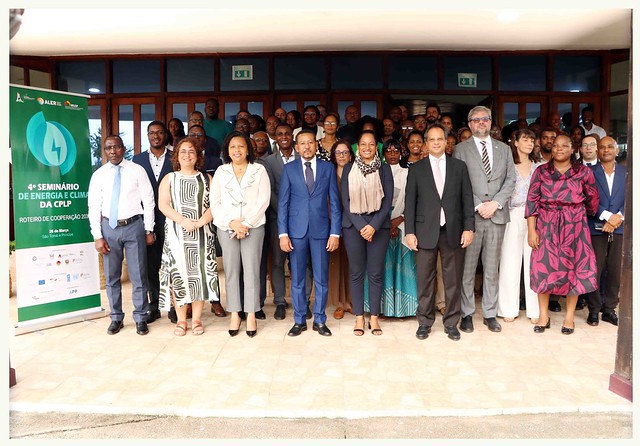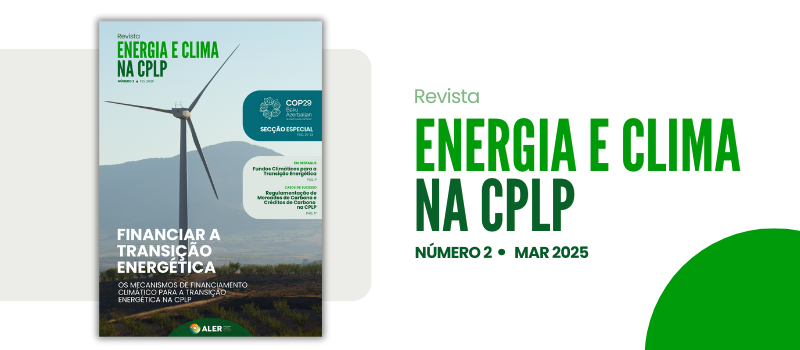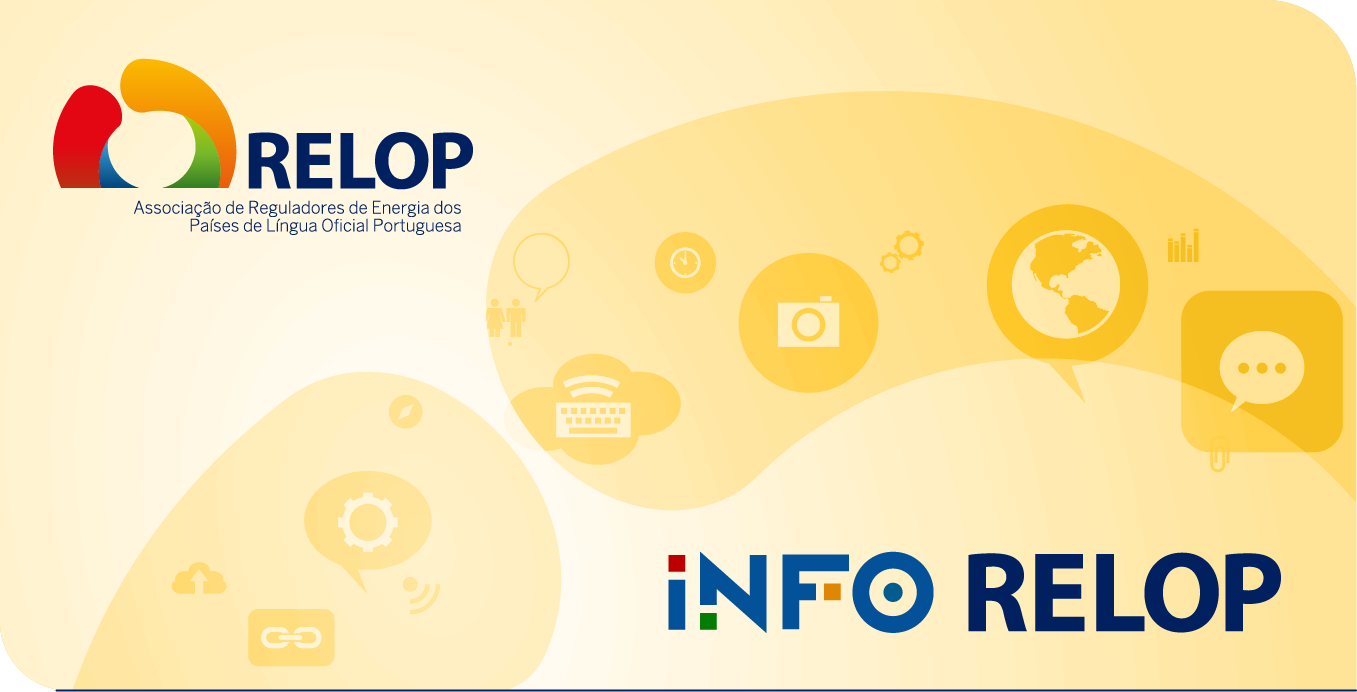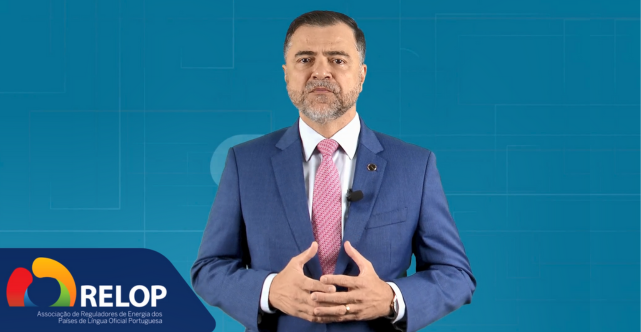The 4th CPLP Energy and Climate Seminar, which took place yesterday (26th March) in São Tomé and Príncipe, focused on coordinating the “CPLP Energy and Climate Cooperation Roadmap 2030”.
“Our 2030 Cooperation Roadmap cannot be a mere technical tool. It must be a living guide that links energy planning for the energy transition with climate justice, economic development with inclusion, innovation with identity, and, above all, transversality,” argued Mayra Pereira, President of ALER, at the event’s opening.
Nelson Cardoso, Minister of Infrastructure and Natural Resources of São Tomé and Príncipe, added that “the success of the Roadmap will depend on political will, the mobilization of financial and human resources, as well as collaboration between the public and private sectors of all member states, without neglecting the involvement of international and multilateral partners.”
“We need strong alliances within the CPLP, the sharing of knowledge and the mobilization of resources to accelerate this transition and ensure that no one is left behind”, emphasized Nilda Borges da Mata, Minister of Environment, Youth, and Sustainable Tourism of São Tomé and Príncipe.
Luís Leandro da Silva, Ambassador of Portugal in São Tomé and Príncipe, highlighted the “importance of an increasingly prominent role of the CPLP in the multilateral Climate-Energy agenda” and pointed to COP30 (scheduled for November this year in Brazil) as “a unique opportunity in this context.” “This is the first time that a Portuguese-speaking country will host a COP,” he stated.
At this seminar, the strategic cooperation axes of the CPLP were identified and priority actions on energy and climate were defined. Additionally, strategies and actions for the energy transition were discussed, along with the conditions for creating an attractive environment for investment and promoting economic cooperation with the involvement of the private sector.
Several representatives from the Governments and Entities of CPLP Member States attended the event and participated in different panels. Among the highlights were: Nilda Borges da Mata (Ministry of Environment, Youth, and Sustainable Tourism of São Tomé and Príncipe); Nelson Cardoso (Ministry of Infrastructure and Natural Resources of São Tomé and Príncipe); Isabel Soares (Ministry of Environment and Energy of Portugal); Wiliam Pina (Ministry of Energy of Guinea-Bissau); Ortigio Nhanombe (Ministry of Mineral Resources and Energy of Mozambique); João Fernandes (Ministry of Energy and Water of Angola); Hélio Guterres (Ministry of Petroleum and Mineral Resources of Timor-Leste); Gilson Pina (Ministry of Finance of Cape Verde); Adriaan Tas (Africa Climate Summit); Maria Teresa Mendizabal (United Nations Development Programme (UNDP) in São Tomé and Príncipe); Ceutónia Lima Neto (African Development Bank); and Samuel Oguah (World Bank).
The event was promoted by the Government of São Tomé and Príncipe, which holds the Presidency of the Community of Portuguese Language Countries (CPLP), along with the CPLP Advisory Observers’ Energy Thematic Commission, coordinated by RELOP and the Lusophone Renewable Energy Association (ALER).
The event was supported by the GET.transform program (funded by the European Union and German Cooperation), the German Agency for International Cooperation (GIZ), the United Nations Development Programme (UNDP) in São Tomé and Príncipe, the Embassy of Portugal in São Tomé and Príncipe, the United Nations Industrial Development Organization (UNIDO) and the World Bank. The National Agency for Petroleum, Gas and Biofuels (ANPG), African Legal Support Facility (ALSF) and Águas de Ponta Preta (APP) were the sponsors of this edition.
As part of a four-day agenda, the seminar was preceded by a technical workshop on “Energy and Climate Cooperation in the CPLP”, held at the Portuguese Cultural Center on 25th March. Aimed at Representatives of the Ministries of Energy, Environment, and Finance, the session was a collaborative effort to prepare the “CPLP Energy and Climate Cooperation Roadmap 2030”.
On March 28, field visits field visits were made to Energy and Climate projects in São Tomé and Príncipe, including the Santa Adelaide Community Project, the Santo Amaro Solar Power Station and the Contador Hydroelectric Power Station.
The CPLP Energy and Climate Seminar Series aims to promote the exchange of experiences and best practices among CPLP countries in the context of the energy transition and encourage the public-private complementarity of financial resources in sustainable energy projects. This initiative is supported by the CPLP, the Ministry of Infrastructure and Natural Resources of São Tomé and Príncipe, the Ministry of Energy and Water of Angola, the Ministry of Mines and Energy of Brazil, the Ministry of Industry, Trade and Energy of Cape Verde, the Ministry of Energy of Guinea-Bissau, the Ministry of Mineral Resources and Energy of Mozambique, and the Ministry of Environment and Energy of Portugal.









